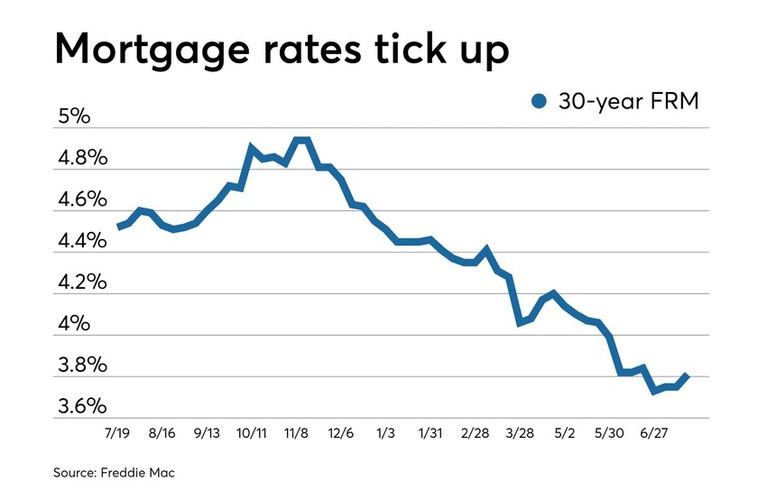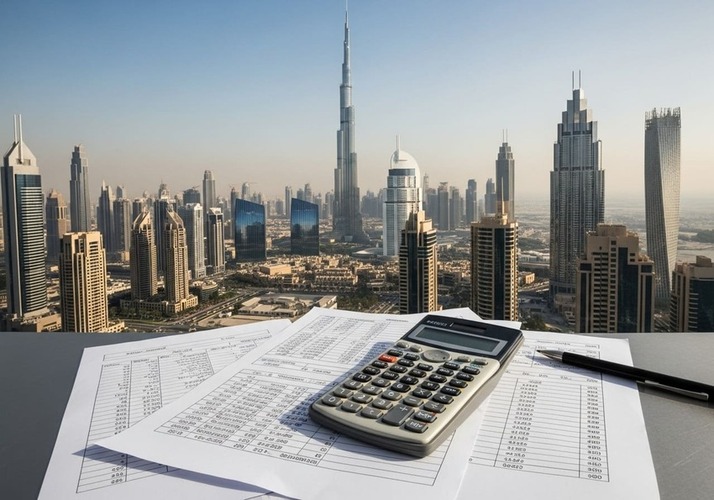Navigating Mortgage Options in Dubai: Expats’ Guide to Best 2025 Rates
Buying property in Dubai as an expat is thrilling—but getting the right mortgage can make or break your dream home purchase. With interest rates currently between 3.5%–5.25%, knowing how to qualify, select, and save on a home loan is essential. In this guide, we’ll walk you through the ins and outs of Dubai home loans for expats, explain how to get a mortgage in Dubai as a foreigner, and offer actionable tips to maximize your chances—all in clear, everyday language.
1. Who Can Get a Mortgage in Dubai?
Unlike some countries, Dubai’s banking system welcomes foreigners—but with rules:
Eligibility Requirements
✅ Legal residency: Valid UAE residence visa required for expat mortgage.
✅ Down payment: Minimum 20% for first-time buyers (30–35% for off-plan projects).
✅ Steady income & clean credit: Provide salary slips, bank statements, and a good CIB credit report.
✅ Debt Service Ratio (DSR): Max 50% of income goes towards debt repayment.
Top Expat-Friendly Banks
✅ Emirates NBD: 3.5%–4.4% for salaried employees.
✅ First Abu Dhabi Bank (FAB): 3.6%–4.8%, with flexible terms.
✅ HSBC: 3.9%–5.0%, smooth process for existing expat clients.
✅ ADCB: 3.7%–4.6% with competitive fixed-rate options.
2. 2025 Dubai Home Loan & Mortgage Rates

Mortgage rates in Dubai vary depending on whether they’re fixed or variable, and who you are.
Typical Rate Ranges
✅ Salaried expats: 3.5%–4.4%
✅ Self-employed: 4.0%–5.0%
✅ Buyers applying from abroad: 4.5%–5.25%
Fixed vs Variable
✅ Fixed-rate: Great for budgeting—rates locked for 3–5 years.
✅ Variable-rate: Tied to EIBOR—can go up or down, but usually starts lower.
Rate Lock Strategies
Most banks allow applicants to lock in a rate at pre-approval, pausing it for 60–90 days while you finalize your property purchase.
3. Tips to Secure the Best Dubai Mortgage

Here are five easy ways to save thousands and improve your odds:
1. Transfer Salary to the Lender – Banks often offer 0.25%–0.5% discounts.
2. Maintain Clean DSR/Credit – Keep debt under 50% of income.
3. Pre‑Approval First – Shows sellers you’re a serious buyer and helps lock rates early.
4. Use Mortgage Brokers – They access multiple lenders, saving time and enhancing your negotiating power.
5. Increase Down Payment – A 30%+ down payment often unlocks better rates and terms.
4. How to Get a Mortgage in Dubai as a Foreigner

Here’s the typical 8‑step process:
| Step | What Happens |
| 1 | Budget & Property Search – Pick from a wide range: apartments, villas, off-plan. |
| 2 | Finance Pre‑Approval – Submit documents and lock an initial rate. |
| 3 | Property Valuation – Bank arranges an independent valuation. |
| 4 | Sign SPA & Deposit – You and the developer/owner sign a sale agreement. |
| 5 | Loan Application – Bank performs final eligibility checks. |
| 6 | Loan Offer – You’ll receive a Letter of Offer. |
| 7 | Loan Disbursement – Funds are sent to seller and registration is triggered at DLD. |
| 8 | Monthly Payments Begin – You start repaying your mortgage. |
For off-plan purchases, Svarn Development and similar developers often offer simplified financing linked to escrow accounts, easing the process.
5. Are UAE Home Loan Interest Rates High?

Not really—they’re competitive globally:
✅ Dubai: 3.5%–5.25%
✅ USA: 6.5%–7.5%
✅ UK: 4.0%–5.0%
✅ Singapore: 2.5%–3.5%
Dubai rates track global trends like the US Federal Reserve via the EIBOR, with a typical spread of 1.5%–2.0%.
Interest costs over 25 years: On AED 800,000 mortgage at 4.5%, you’ll pay approx. AED 1.35M in interest—highlighting how even a 0.5% rate difference impacts savings.
6. Real‑Life Case Study: 1M AED Purchase
Let’s break it down:
✅ Price: AED 1,000,000
✅ Down payment: AED 200,000 (20%)
✅ Loan: AED 800,000
✅ Term: 25 years
✅ Rate: 4.25%
Monthly payment: AED 4,700
Total repayment: ~AED 1.41M
Given typical Dubai appreciation and rental yields, you could offset mortgage costs or even turn a modest profit—especially with smart financing.
7. Uber Tips for Saving Thousands
1. Check Rates Often – Central Bank policy changes can shift borrower rates quickly.
2. Consider Refinancing – Many banks allow refinance after 1–2 years if your credit or income improves.
3. Combine Bank Loans – e.g., mortgage + car or personal loan can reduce overall rates.
4. Pay more if possible – Extra payments reduce principal and interest cost dramatically.
5. Shop Around – Rates vary—spend a day interviewing banks and brokers.
FAQ
Q1: Can expats get a home loan in Dubai?
Yes, expats can apply for mortgages in Dubai, typically needing a 20% down payment, valid residency, and proof of stable income.
Q2: What are the current mortgage rates in Dubai for expats?
As of mid-2025, mortgage interest rates for expats range between 3.5% and 5.25%, depending on the lender and borrower profile.
Q3: Which banks offer the best mortgage rates in Dubai for foreigners?
Top expat-friendly lenders include Emirates NBD, FAB, HSBC, and ADCB, offering flexible terms and competitive rates.
Q4: How do I qualify for a mortgage as a foreigner in the UAE?
You’ll need a valid UAE residence visa, proof of income (salary slips, bank statements), and a good credit score. Your total debt must not exceed 50% of your monthly income.
Q5: Is it better to get a fixed or variable mortgage in Dubai?
A fixed-rate offers stability and is ideal for budgeting, while a variable-rate may start lower but can fluctuate with market changes.
Q6: Can non-residents or overseas investors get a mortgage in Dubai?
Some banks do offer limited options to non-residents, but the terms often include higher interest rates and larger down payments (30–40%).
Q7: What documents are required to apply for a mortgage in Dubai?
Typically: Passport, Emirates ID, salary certificate, bank statements (6 months), credit report, and property sale agreement (SPA).
Q8: What is the mortgage term length in Dubai?
Mortgage tenures typically range from 15 to 25 years, with the maximum age at loan maturity capped around 65 for salaried and 70 for self-employed applicants.
Conclusion & Next Steps
Securing the best mortgage rates in Dubai doesn’t have to be complicated. By preparing documents, exploring lenders, leveraging mortgage brokers, and being smart about down payments, you can save significantly on interest—leaving more money for the Dubai home of your dreams, like those at Sereno Residences by Svarn Development.




